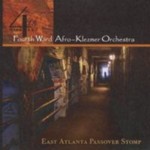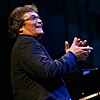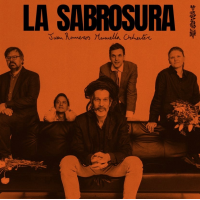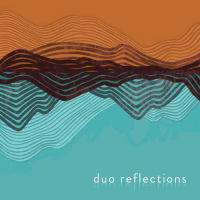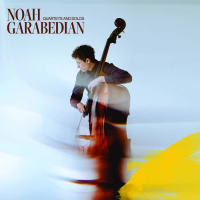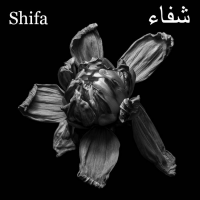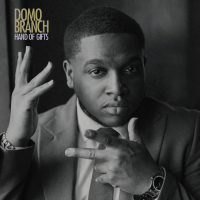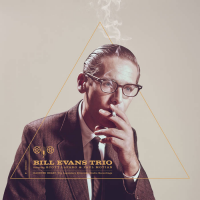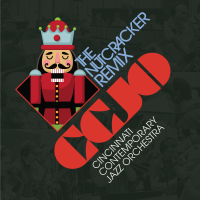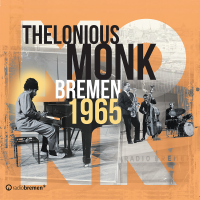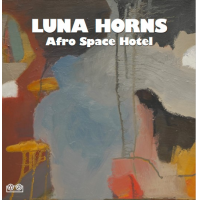Home » Jazz Articles » Album Review » 4th Ward Afro-Klezmer Orchestra: East Atlanta Passover Stomp
4th Ward Afro-Klezmer Orchestra: East Atlanta Passover Stomp
East Atlanta Passover Stomp is a delicious stew of music played in the dialects of Klezmer, jazz and the new Afro-pop, the kind that Fela Kuti made musical bombs with and exploded all over Europe and the world. Happily the music, although through-composed and quite stylish, loses none of its raw brassiness in translation. "Greater Lagos Wed. Night Talmud Meeting," for instance, is a wonderful take on Charles Mingus "Wednesday Night Prayer Meeting," complete with abrupt Mingusian changes in rhythm. But it is also a work of singular brilliance, complete with ecstatic Holy-Rolling and the hypnotic howl of spiritual worship.
The wonderful Klezmer spirit is showcased in "Dolgo Horo," ("Daily Horoscope") a modern send-up of an old Balkan custom and although the music has no lyrics to go with it, is crafted with beautifully suggestive harmonies and is as likely to be virtually as memorable as the popular Yiddish theme from "Fiddler on the Roof." Jeff Crompton's alto sax solo and Blake Williams' trombone choruses are superbly contemporary flights of fancy. Colin Bragg solos in a swaggering blues manner too. "RED RAT!!" and "9th Ward Dirge" are charged decoctions brimful with slightly off-key instrumentation, dexterous soloing in a Gypsy idiom melded with brassy marching street bands, Yiddish musical idiosyncrasies, Yoruban Santeria, and Jewish Seder service, wonderfully swathed in bold big band harmonics.
"O Se Shalom" works as beautifully in a Klezmer idiom, as well as the Afro-Caribbean Santeria original does. "Glad You Think So (Part 2)" and "Sweet Auburn Mishegas" are roaring songs that lift the spirits in just the same manner as the spiritual tracks do, only this is more a street-level kind of "spiritual" high. And "Cabbagetown Jitter" has striking changes—all in minor modes—and incorporates a wonderfully brazen head. The brass and woodwinds swirl around each other with bold harmonics until the song builds up in swaggering tempo, before Bill Nittler plays his baritone solo with attitude, slyly fading out for trombone and tenor saxophone to take over. The music returns to ensemble in a manner that recalls a mighty Carla Bley arrangement, working itself onwards the inevitable conclusion.
The timeline of American history is rich in exemplary music in blues and Klezmer idioms. Space is too limited for detail, but if the chance to heed the call of Mingus' Blues and Roots (Atlantic, 1960) and Don Byron Plays The Music of Mickey Katz (Elektra, 1993), it's catch-up time now.
Track Listing
Lagos Wed. Night Talmud Meeting; Dolgo Horo; RED RAT!!; O Se Shalom; Glad You Think So (Part 2); East Atlanta Passover Stomp; 9th Ward Dirge; Sweet Auburn Mishegas; Cabbagetown Jitter.
Personnel
4th Ward Afro Klezmer Orchestra
composer / conductorColin Bragg: guitar; Chris Case: Fender Rhodes; Jeff Crompton: alto saxophone, clarinet (7), baritone saxophone (8); Ben Davis: tenor saxophone; Chip Epsten: violin; Ben Gettys: bass; Keith Leslie: drums; Bill Nittler: baritone saxophone, clarinet, alto saxophone (8); Roger Ruzow: trumpet; Blake Williams: trombone.
Album information
Title: East Atlanta Passover Stomp | Year Released: 2009 | Record Label: Self Produced
Tags
About 4th Ward Afro Klezmer Orchestra
Instrument: Composer / conductor
PREVIOUS / NEXT
Support All About Jazz
 All About Jazz has been a pillar of jazz since 1995, championing it as an art form and, more importantly, supporting the musicians who make it. Our enduring commitment has made "AAJ" one of the most culturally important websites of its kind, read by hundreds of thousands of fans, musicians and industry figures every month.
All About Jazz has been a pillar of jazz since 1995, championing it as an art form and, more importantly, supporting the musicians who make it. Our enduring commitment has made "AAJ" one of the most culturally important websites of its kind, read by hundreds of thousands of fans, musicians and industry figures every month.


